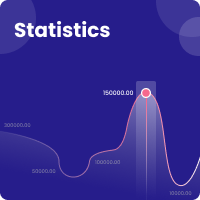A critical review of the Actor-Network theory for the study of artifacts
Abstract
The Actor-Network Theory (ANT) is an alternative and novel approach in social studies of science and technology because it represents an inversion of the dominant constructivist vision. Such theory states that artifact networks are not products or repositories of social content but elements that enable social life and associations; in other words, a sort of “Copernican revolution” in social studies. Therefore, it proposes a generalized principle of symmetry in which nonhuman actants (e.g., artifacts, scripts, and texts) have the same agency as human actors. This fact has raised criticism that calls into question the convenience and explanatory power of this theory. In this paper I review and share some aspects of these criticisms. However, it is intended to stress the proactive aspects of ANT for material culture studies and the philosophy of technology.
References
Bijker, W. & Pinch, T. (1984). The social construction of facts and artifacts: Or how the sociology of science and the sociology of technology might benefit each other. Social Studies of Science, 399-441.
Bloor, D. (1976). Knowledge and social imagery. Chicago: University of Chicago Press.
Bloor, D. (1999). Anti-Latour. Studies in History and Philosophy of Science, 30(1), 81–112.
Brey, P. (2005). Artifacts as Social Agents. En H. Harbers, Inside the Politics of Technology Agency and Normativity in the Co-Production of Technology and Society (pp. 61-84). Amsterdam: University of Amsterdam Press.
Broncano, F. (2012). La estrategia del simbionte. Cultural material para nuevas humanidades. Salamanca: Delirio.
Broncano, F. (2012a). Agencia y cultura material. Notas complementarias a «Movilidad de conceptos y artefactos». Manuscrito, 1-21.
Callon, M. (1986). Some elements of a sociology of translation: domestication of the scallops and the fishermen. En J. Law, Power, action and belief: a new sociology of knowledge? (pp. 196-223). London: Routledge.
Collins, H. M. & Yearly, S. (1992). Epistemological Chicken. En A. Pickering, Science as Practice and Culture (pp. 301-325). Chicago: The Universtity of Chicago Press.
Durkheim, E. (1986). Las reglas del método sociológico. (E. de Champourcín, Trad. ) México: Fondo de Cultura Económica.
Echeverría, J. & González, M. I. (2009). La teoría del actor-red y la tesis de la tecnociencia. Arbor. Ciencia, Pensamiento y Cultura, 705-720.
Haraway, D. (1995). Ciencia, cyborg y mujeres. La reinvención de la naturaleza. Madrid: Tecnos.
Latour, B. (2001). La esperanza de Pandora. Ensayos sobre la realidad de los estudios de la ciencia (T. Fernández Aúz, Trad. ). Barcelona: Gedisa.
Latour, B. (2005). Reassembling the Social. An Introduction to Actor-Network-Theory. Oxford: Oxford University Press.
Latour, B. (2008). Reemsamblar lo social. Un introducción a la teoría del actor-red. Buenos Aires: Manantial.
Law, J. (2009). Actor network theory and material semiotics. En B. S. Turner (Ed. ), The New Blackwell Companion to Social Theory (pp. 141-158). West Sussex: Blackwell Publishing.
Lee, N. & Brown, S. (1994). Otherness and the Actor Network: The Undiscovered Continent. American Behavioral Scientist , 772-790.
Monterroza, Á. ; Escobar, J. M. & Mejía, J. A. (Septiembre de 2015). Por una revaloración de la filosofía de la técnica. Un argumento a favor del rol cultural de la técnica. Revista Iberoamericana de Ciencia, Tecnología y Sociedad, 10(30), 265-275.
Mumford, L. (1997). Técnica y Civilización (1997 ed. ). Madrid: Alianza.
Osorio, C. A. (s. f. ). Reseña de Latour, Bruno. La esperanza de pandora. Ensayos sobre la realidad de los estudios de la ciencia. Praxis Filosófica(15), 139-142.
Rodríguez-Giralt, I. (2012). De redes y otros enredos: acerca de la ontología política de la red. En F. Tirado Serrano & D. López Gómez, Teoría del Actor-Red. Más allá de los estudios de ciencia y tecnología (pp. 357-394). Barcelona: Amentia Editorial.
Tirado, F. & Domenech, M. (2005). Asociaciones heterogéneas y actantes: el giro postsocial de la teoría del actor-red. En T. Sánchez-Criado, Tecnogénesis. La construcción técnica de las ecologías humanas. Volumen 1 (pp. 41-78). Madrid: Antropólogos Iberoamericanos en Red - AIBR.
Downloads
Altmetric










